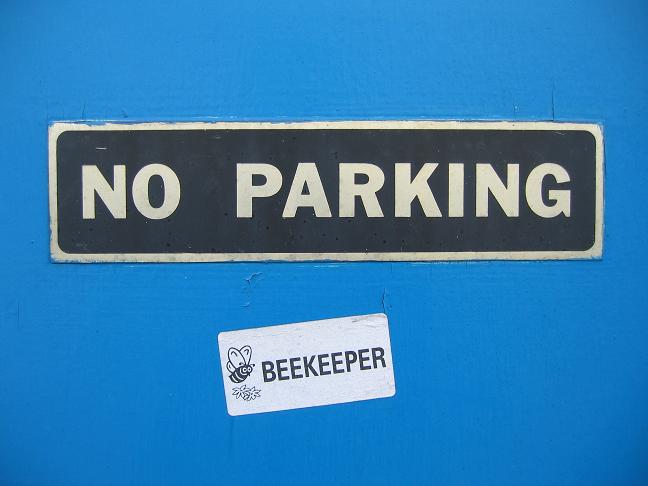Open Source Business Models: the Beekeeper model
James Dixon, Pentaho Chief Technology Officer, commenting a post introduced me to the “Beekeeper model“, a model used by open source firms writing the majority of the code.
 Beekeepers (private) parking by Phil Downsing
Beekeepers (private) parking by Phil Downsing
The Bee Keeper mode, which applies to companies like Pentaho, Alfresco or Zimbra, is about open source products where the original author, a company, is the main (if not the only) source code contributor (corporate production, in my words).
Going through the whole document (PDF), I found interesting Dixon’s observations about the different kind of professional open source (commercial open source) firms looking at them by the relationship with the code:
- Passive / Committers: Did not write much, if any, of code themselves. They provide services and support for third party open source software. They do not have their own community.
.- Outers: Code started as proprietary software and has been released into open source by the creators.
.- Founders: Originated project to be professional open source from the start. Often need seed capital to achieve this.
.- Converters: Started project as open source project without intent to make money from it. Added ways to make income from it after it became successful. These are sometimes small businesses. Examples: JFreeChart.
.- Baiters: Released an open source project as a method to attract consumers to a different, proprietary piece of software. Examples: Actuate BIRT.
What is missing is a taxonomy describing how Professional Open Source firms cope with their communities, and how (and if) their business models are affected by the relationship.
I suspect that Converters examining later which business model would be right for them have lesser choice, nevertheless they have a community and they can get advantage of it.
About Outers, I believe that a taxonomy of the reasons to give away software would reveal something really interesting. The reason affects how and if the software will eventually be developed in cooperation with a community (hybrid production).
Founders are also intriguing, whether they belong to the “third wave” (applications), or are exploring business models based on the absence of a corporate actor, why VCs are interested in investing in open source software firms would be important too. I guess that VCs play a very important role in the community start-up process.

Debbie Moynihan 10:12 am on May 27, 2007 Permalink
This is interesting. I hadn’t seen this list of business models before – thanks for sharing it. I attended OSBC this week where several different models were discussed. One thing that I find most interesting is how everyone seems to continuously evolve their business models over time as they figure out what works. I am hoping to get my notes from OSBC posted in the next 24 hours or so onto my blog.
Deb
Roberto Galoppini 11:20 pm on May 28, 2007 Permalink
Hi Debbie,
unfortunately I couldn’t join OSBC this year, so I am eager to know more about it, please.
About business models I believe that OS market is young enough to keep changing, because it is fundemental true that: